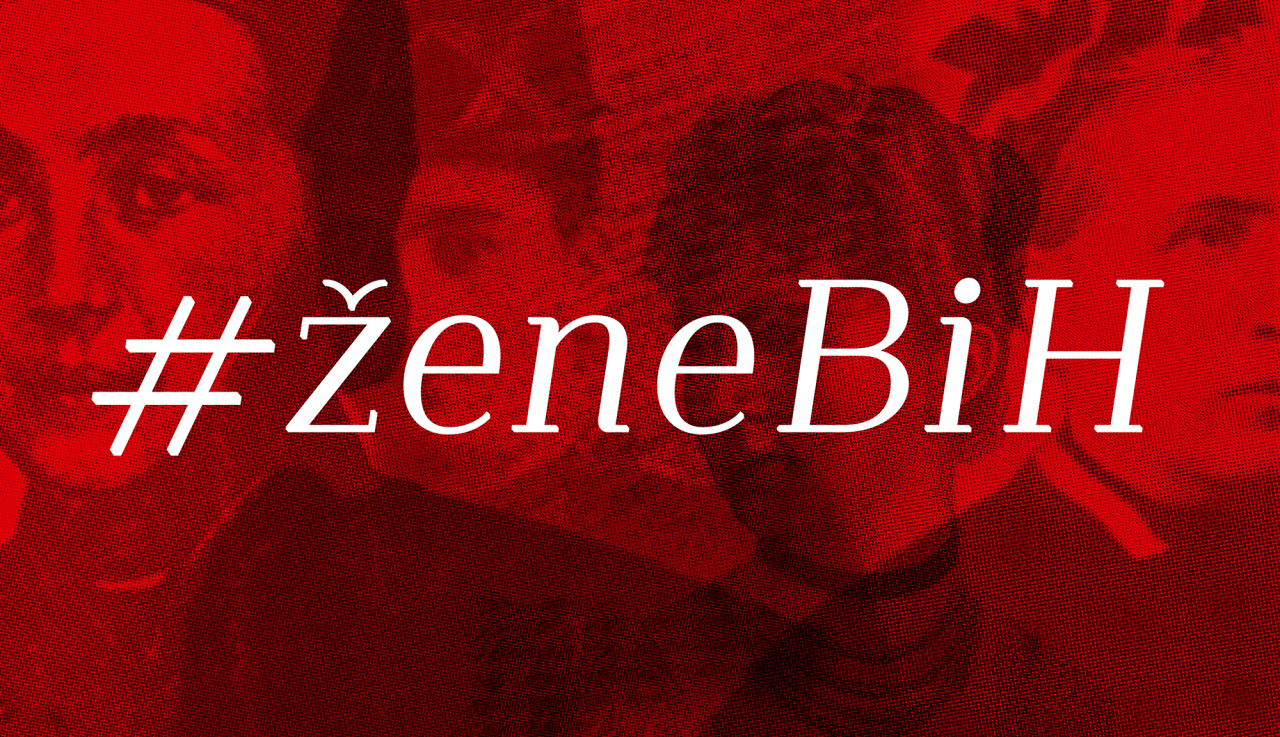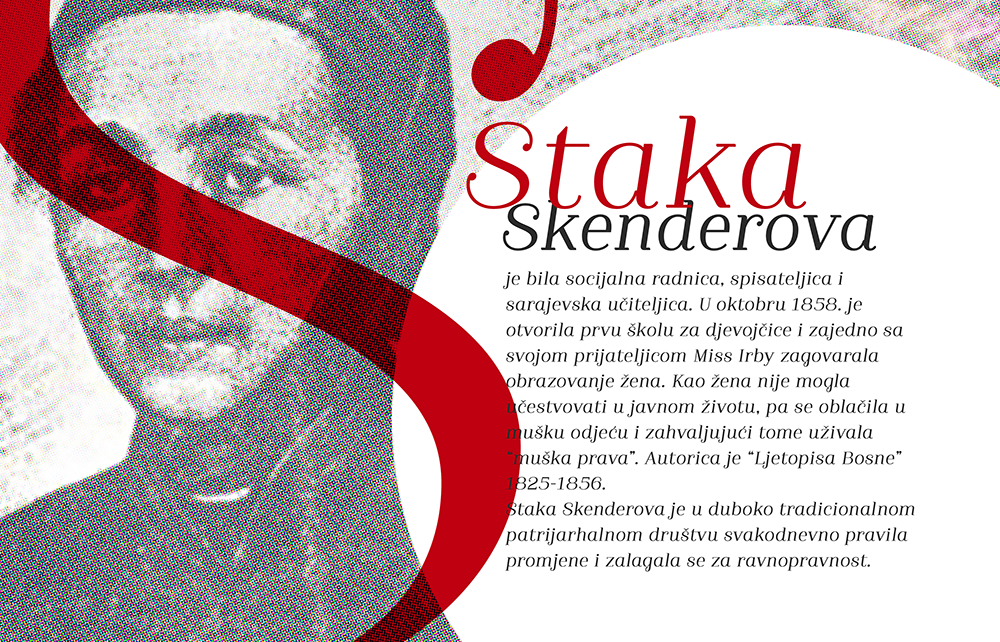
People will question your idea, but the most important thing is that you believe in it all the way, even if you fail multiple times throughout your journey.
Everybody has heard of the concept of the “glass ceiling”, the barrier that stifles the dreams and aspirations of women, young and old. When we think about how to shatter it, we often count how many women are in positions of power, as elected officials, or as heads of private companies. But we often ignore the ordinary women who pose perhaps the strongest opposition to the oppressive structures that continue to impede women’s rights: ordinary women like those that make up #ŽeneBiH, for example.
#ŽeneBiH – meaning “Women of Bosnia and Herzegovina” – began with three women – Maša Durkalić, Hatidža Gušić, and Amila Hrustić Batovanja – and their simple idea to stage a social media campaign depicting everyday Bosnian women who had re-imagined women’s role in Bosnian society.
Their campaign began in March 2018 with a Facebook post that shined a light on Staka Skenderova, Bosnia’s first teacher and social worker. As the women continued to identify and promote more ordinary heroines, the campaign went viral, captivating audiences across the Balkans and beyond. Their passion for women’s history, accompanied by their feminist and activist roots, inspired the three to take the #ŽeneBiH initiative one step further, and create a book that tells the stories of “female artists, writers, poets, social workers, national heroines, directors, scientists, musicians, doctors, activists, professors, deans, pilots, and other women who have been pioneers in their fields.”

Each story preserves the memory of “women who promoted women’s rights at a time when they did not even exist, women who gave their lives in the fight against fascism,” as well as those who broke new ground simply by allowing themselves to dream of and achieve new heights. And of course by documenting the remarkable women who have left their mark on Bosnia, Gušić, Durkalić, and Batovanja have become part of those stories they seek to preserve.
In the face of considerable challenges – lacking infrastructure, funding and resources – #ŽeneBiH exemplifies what is possible when an idea is backed up by diligence and passion. Gušić is convinced that the group’s commitment to organizing, planning, and leaving nothing to chance is quintessential to their success. “Believing in your idea is the key,” she notes.

Batovanja says the magic comes as a result of focusing on your inputs, and what you can control, which allows the outputs to take care of themselves. “People will question your idea, but the most important thing is that you believe in it all the way, even if you fail multiple times throughout your journey,” she says. #ŽeneBiH launched their book on 8 March 2019 – International Women’s Day – a year after their first Facebook post. Comprised of the biographies of over 50 women from Bosnia and Herzegovina it aims to inspire further documentation and educational initiatives both inside the country and internationally. The work of #ŽeneBiH and their vision is a testimony to the fact that the brightest, most inspiring messages can be developed in the most unexpected of places. As Batovanja puts it: “You learn by doing, by taking action, not by thinking about doing something. You don’t have to know everything in order to start creating.”
What can you tell our readers about the project #ŽeneBiH?
Maša Durkalić: The book #ŽeneBiH is an artistic, activist and research initiative that is comprised of biographies of over 50 BiH women who have broken stereotypes and advocated women’s rights and emancipation. Each woman was illustrated by a different woman illustrator/designer/artist from BiH. This is a book about first female artists, writers, poets, social workers, national heroines, directors, scientists, musicians, doctors, activists, professors, deans, pilots and even soccer referees.
What inspired you to make such a book?
Hatidža Gušić: All three of us are feminists and activists. We take women’s rights seriously and we try to contribute to the improvement of the position of women in Bosnia and Herzegovina, through different initiatives and actions. We constantly talk about amazing women and their achievements, so we were concerned that women’s history is being neglected, and we wanted to do something about it.
What lessons have you learned in this creative process?
Amila Hrustić Batovanja: This was a long process and it is not yet finished. I learned a lot and I am still learning. I would highlight three lessons that have been repeated many times through this process: Kick it off, you can only control the inputs and trust your own guts.
__________________________________________________________________________________
This article was initially published within the Bosnian edition of ASBO Magazine in 2019. ASBO Magazine is an independent publication created by the D Foundation as an extension of its mission to unearth and showcase fresh talent. The magazine aims to showcase the artistic talents and potential of Bosnians and Herzegovinians in an effort to empower and give them an international platform to share their work, ideas, and opinions on music, fashion, art, and cinematography.






